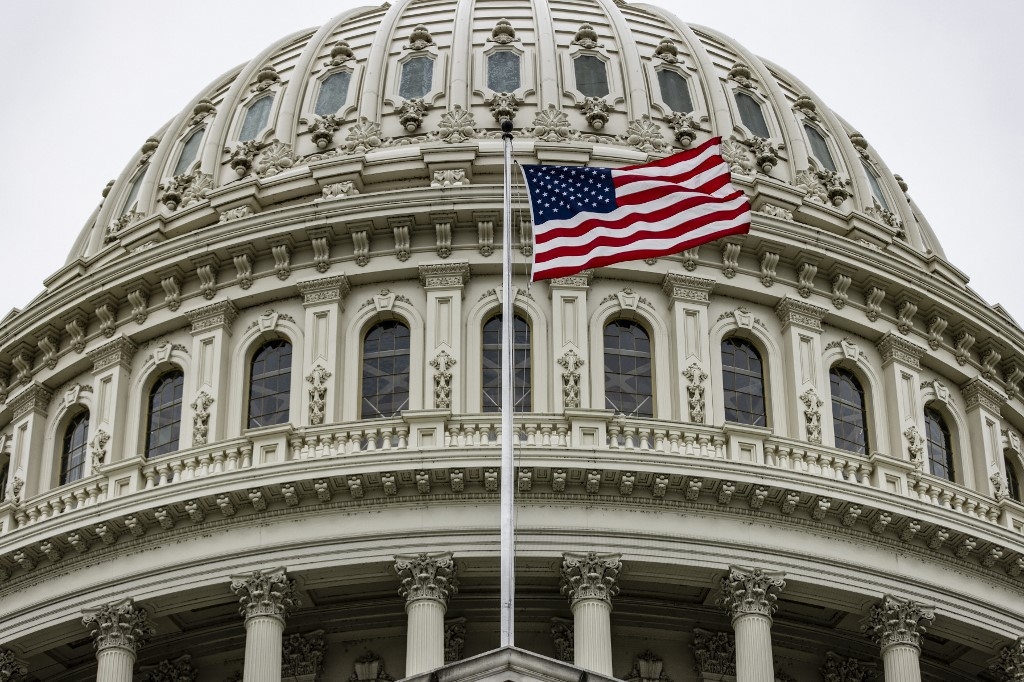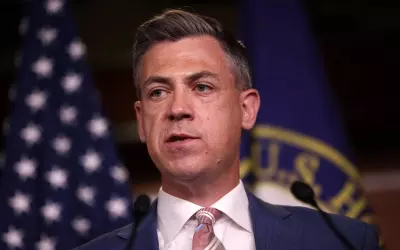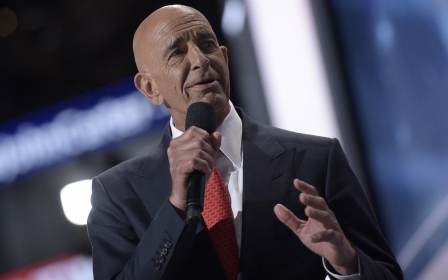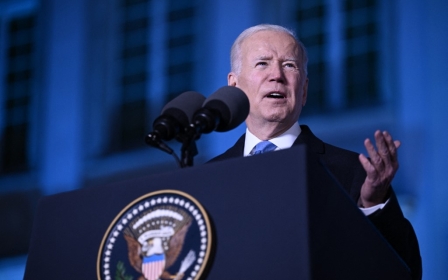US: House bill seeks to curb foreign influence in government and civil society

A group of bipartisan lawmakers on Thursday introduced a bill seeking to curb foreign influence by imposing a lifetime ban on members of Congress, senior military leaders and senior executive branch officials from lobbying for a foreign government or political party.
The legislation, led by Democrat Congressman Jared Golden, would also compel tax-exempt groups, including think-tanks, to disclose large monetary donations and gifts from foreign powers. Additionally, it would mandate political campaigns to verify that donors have a valid US address, using the three-digit security code on the back of credit cards.
The bill comes in response to growing concern on Capitol Hill that institutions in Washington, both in the government and civil society, remain susceptible to foreign interference.
It comes days after four-star Marine General John R Allen resigned as president of the Brookings Institution following a federal probe assessing whether he lobbied on Qatar's behalf without disclosing his activities as required under federal law.
A spokesman for Allen told the Washington Post that the retired general "has done nothing improper or unlawful, has never acted as an agent of Qatar or any foreign government or principal, and has never obstructed justice".
New MEE newsletter: Jerusalem Dispatch
Sign up to get the latest insights and analysis on Israel-Palestine, alongside Turkey Unpacked and other MEE newsletters
Golden said one of the main issues in the American political system was the lack of accountability, where "corruption is either completely legal or punished with slaps on the wrist".
"Right now, foreign governments are able to secretly fund think-tanks to push their own agendas, hire former public officials and military officers to lobby for their interests, and have their agents raise millions of dollars for political campaigns. For the good of the country, that needs to end immediately," Golden said.
"Our bipartisan legislation would help close each of these loopholes. Fighting foreign influence isn’t a partisan issue - it's an American issue. It's time for Congress to act."
The bill has received the backing of Democrat Katie Porter of California and Republicans Lance Gooden and Paul Gosar.
"Americans distrust government no matter which party is in power. By cracking down on foreign gifts, donations, and lobbying, we can begin the hard work of earning back the people’s trust," Porter said.
Federal law already prohibits contributions from foreign nationals in any federal, state or local election. But the bill’s sponsors say a number of loopholes exist to bypass the law, including the lack of a requirement that campaigns use industry-standard tools to verify online contributions.
The bill also comes after the arrest of Trump associate Tom Barrack, on charges that he and two associates were part of a secretive effort to shape Trump's foreign policy to the benefit of the UAE. Barrack denies the charges.
Middle East spends big on lobbying
A 2020 report by the Center for International Policy found that more than $174m in foreign funding was donated to 50 of the top US think-tanks.
The CIP report also found that several Middle Eastern countries were among the top foreign donors to Washington-based think-tanks.
The UAE and Qatar were among the top ten countries donating to these organisations, donating $15.4m and $8.5m respectively, according to the report. Morocco, meanwhile, was included in the top 20 countries with donations totalling $2.8m.
Most think-tanks organised as nonprofits are not obliged to disclose their funding, though some - such as Brookings - do so voluntarily. Golden's bill would require disclosure of gifts and donations from foreign powers greater than $50,000 in a given year.
The bill builds on several previous bipartisan congressional efforts to rein in foreign influence.
Last November, Republican Congressman Jim Banks introduced a bill seeking to close a long-standing loophole and require experts giving congressional testimony to disclose foreign contributions that their employers receive.
While current rules in the House state that witnesses testifying during hearings must disclose their organisation's ties to funding from abroad, Banks' legislation would remove a rule that allows witnesses to hide those ties by testifying in an individual capacity.
Middle East Eye delivers independent and unrivalled coverage and analysis of the Middle East, North Africa and beyond. To learn more about republishing this content and the associated fees, please fill out this form. More about MEE can be found here.





